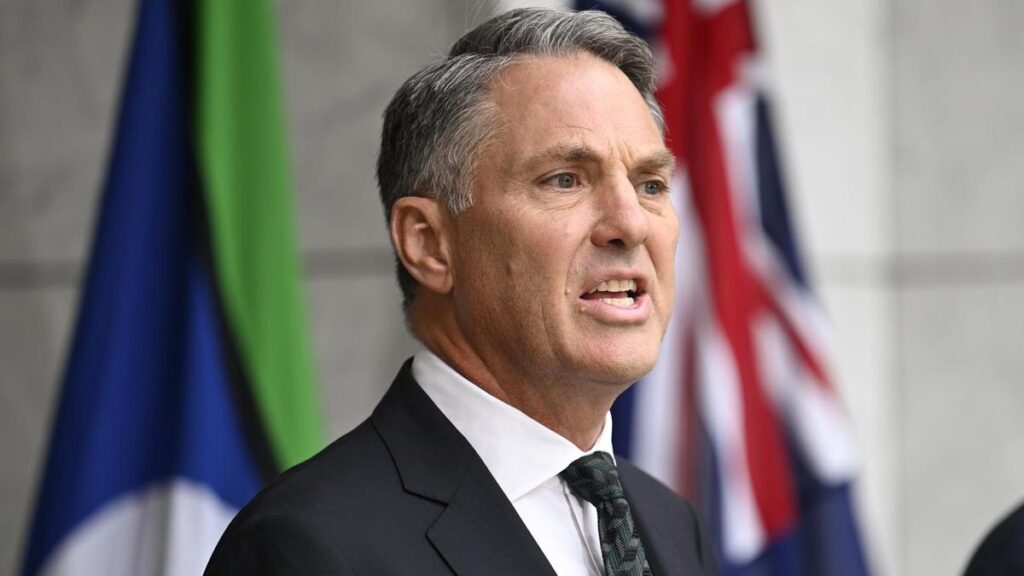Deputy Prime Minister Richard Marles says it is “inevitable” Australians will pay more for fuel as the conflict between nuclear-armed Israel and Iran escalates.
The long-time foes continued trading deadly strikes overnight, with civilian deaths reported by both sides.
In Iran, emergency crews have been battling blazes at several major oil and gas facilities after the Israeli military hit them.
State media has also reported damage to military sites across the Islamic republic, including the defence ministry’s headquarters in the capital Tehran.
Meanwhile, Iran has targeted the Israeli port city of Haifa as well as residential areas in southern Israel and vowed to continue to intensify attacks.
Mr Marles said on Monday the Albanese government was “very concerned” by the rapidly escalating conflict and repeated Canberra’s call for “both parties to focus on diplomacy and dialogue”.
“In making that call, we are joining voices from the United States, from the United Kingdom, Germany, France and many other countries around the world which are also urging the parties to engage in restraint and to focus on diplomacy and dialogue precisely because we are worried about this escalating into a wider conflict,” he told the ABC.
The price of Brent crude oil – the oil benchmark with the strongest sway on Australia’s fuel prices – jumped 4 per cent on Sunday evening to $US77 (A$118) per barrel.
It came on top of the 8 per cent surge on Friday when Israel launched its “pre-emptive” attack targeting Iran’s nuclear program.
Mr Marles said the extent of the impact hostilities would have on Australia’s economy “depends a bit on how long the conflict goes and the way in which it plays out”.
But he said it was “right to focus on fuel”.
“And already we have seen over the course of the last few days the global oil price go up and it’s the inevitable consequence of any conflict,” Mr Marles said.
“We saw this with the war in Ukraine, that does disrupt global supply chains and that has an economic impact around the world.
“So, we are very much monitoring that closely to see what the ultimate impact is here, in Australia.”

He added that it was “part of why we are very much urging in this moment for both parties to engage in diplomacy and dialogue”.
Anthony Albanese, who is in Canada for the G7 summit, told a press conference that concerns around Australia’s fuel reserves had been around “for quite a while“.
The Prime Minister said it was “something that the government continues to monitor”.
Mr Albanese also said he and his Canadian counterpart Mark Carney discussed the Middle East when they met in Calgary ahead of the G7 summit.
He said they “share a view wanting to see a de-escalation of conflict, wanting to prioritise dialogue and diplomacy”.
“I have expressed before our concern about Iran gaining the capacity of nuclear weapons as something that is a threat to security in the region,” Mr Albanese told reporters.
“But we, along with other like-minded country, do want to see that priority on dialogue and diplomacy.
More to come.

